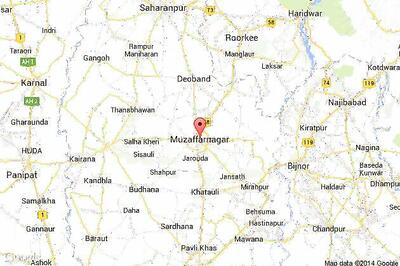
views
The Bangladesh government’s release of terrorist and Ansarullah Bangla Team (ABT) chief Jashimuddin Rehmani last week is a cause for concern for India, said top intelligence sources. Rehman was convicted in the murder of blogger Ahmed Rajib Haider.
According to sources in Bangladesh and New Delhi, Rehmani is working closely with the terrorist group Al Qaeda and has carried out many violent incidents in Bangladesh. “His release is a clear indication of how the new Bangladesh government is looking at its relationship with India,” said intelligence sources.
Local sources said Rehmani was facing charges of terrorism and attempting to incite violence in Bangladesh. “He is also known for running many sleeper cells in India and is a close associate of the Al-Qaeda in the Indian Sub-Continent (AQIS),” they added.
As Sheikh Hasina resigned as the PM of Bangladesh and fled the country amid protests over jobs quota earlier this month, Prof Mohammad Yunus took oath as the head of Bangladesh’s interim government.
ABT OP IN 2017
The previous Sheikh Hasina government had banned the ABT in 2015 and was cooperating with India on many such issues. “The ABT works on foreign funding and wanted to create problems in India through infiltration in the North-East and its association with the Lashkar-e-Toiba in Pakistan. The ABT wanted to carry out attacks in India. First, they caused trouble in Assam in 2017, when they got two Imams to take shelter and carry out their work. These Imams were found linked to the AQIS,” intelligence sources said.
IN 2022
In 2022 again, an AQIS and ABT module was busted in Assam. News18 had reported how the arrest of 17 men of Ansar al Islam terror module brought to the fore the rising propaganda of al-Qaeda in India through radicalisation and cyberspace.
India’s central Intelligence agency and police of Assam, Madhya Pradesh, Tripura, Uttar Pradesh and West Bengal neutralised al-Qaeda-inspired Ansar al Islam module in March-April. Among the 17 arrested individuals, four are Bangladeshis illegally residing in India, and the remaining ones are Indians. Six cases under various sections and Unlawful Activities (Prevention) Act (UAPA) have been registered against them by law enforcement agencies.
According to Intelligence Bureau, the Ansar al Islam module was disseminating al-Qaeda propaganda on social media and influencing and radicalising impressionable men towards its ideology. The module was also involved in instigating Indian youngsters for armed Jihad, planning targeted assassination of select right-wing leaders and personalities and mobilising funds from sympathisers for al-Qaeda.



















Comments
0 comment